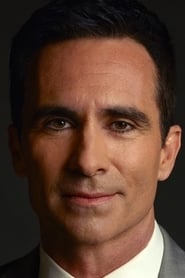
Ask Your Own Question
What is the plot?
In the opening of "The Pendulum Swings," the episode begins with Alex Levy, portrayed by Jennifer Aniston, grappling with the fallout from the previous episode's revelations about her co-anchor Mitch Kessler, played by Steve Carell. The tension is palpable as Alex prepares for the morning broadcast, her anxiety evident as she faces the scrutiny of the media and the public. She is determined to maintain her composure and professionalism despite the chaos surrounding her.
As the broadcast begins, Alex and her new co-anchor, Bradley Jackson, played by Reese Witherspoon, are forced to navigate the delicate balance of addressing the scandal while keeping the show engaging. Alex tries to assert her authority, but Bradley's fresh perspective and willingness to challenge the status quo create friction between them. The dynamic is charged, with both women vying for control over the narrative of the show.
Meanwhile, Mitch is dealing with the consequences of his actions and the public's reaction to the allegations against him. He is shown in a vulnerable state, reflecting on his past decisions and the impact they have had on his career and personal life. His internal struggle is highlighted as he attempts to reach out to Alex, seeking her support and understanding, but she remains distant, torn between her loyalty to him and her own professional integrity.
As the episode progresses, the tension escalates when a new scandal emerges involving another prominent figure in the news industry. This revelation sends shockwaves through the network, prompting a crisis meeting among the executives. The stakes are raised as they discuss the potential fallout and how to manage the public relations disaster. Alex and Bradley are called in to strategize, and their differing approaches to handling the situation become increasingly apparent.
In a pivotal moment, Alex confronts Bradley about her aggressive style and the way she handles interviews. This confrontation reveals deeper insecurities within Alex, who fears being overshadowed by Bradley's rising popularity. The emotional stakes are high as both women express their frustrations and vulnerabilities, leading to a moment of unexpected camaraderie as they realize they are both fighting against a system that seeks to undermine them.
As the episode nears its climax, the network decides to air a special segment addressing the ongoing scandals. Alex and Bradley are tasked with leading this segment, and they must work together to present a united front. The pressure mounts as they prepare for the live broadcast, and both women experience a mix of fear and determination. Their chemistry begins to shift as they find common ground in their shared experiences as women in a male-dominated industry.
The live segment unfolds with a raw and emotional tone, as Alex and Bradley confront the issues head-on. They address the allegations against Mitch and the broader implications for the industry, speaking candidly about the need for change. The broadcast is a turning point, showcasing their growth as individuals and as a team, and it resonates with viewers, sparking conversations about accountability and the treatment of women in the workplace.
In the aftermath of the broadcast, the network executives are pleased with the response, but the personal toll on Alex and Bradley is evident. Alex reflects on her choices and the sacrifices she has made for her career, while Bradley grapples with the reality of her newfound fame and the responsibilities that come with it. The episode concludes with both women at a crossroads, contemplating their futures and the impact of their decisions, setting the stage for the ongoing challenges they will face in the cutthroat world of morning television.
What is the ending?
In the ending of "The Morning Show," season 1, episode 6, titled "The Pendulum Swings," the episode concludes with a tense confrontation between Alex and Mitch, as well as a significant shift in the dynamics of the show's production team. Alex grapples with her feelings of betrayal and the implications of Mitch's actions, while the team faces the fallout from the ongoing scandal. The episode ends with a sense of uncertainty and the realization that the consequences of their choices will continue to reverberate.
As the episode unfolds, we begin with Alex Levy, portrayed by Jennifer Aniston, feeling the weight of the recent revelations about her former co-host, Mitch Kessler, played by Steve Carell. The atmosphere is charged with tension as the network grapples with the fallout from the sexual misconduct allegations against Mitch. Alex is torn between her loyalty to Mitch and her role as a public figure who must address the situation head-on.
In a pivotal scene, Alex meets with the network executives, who are pressuring her to take a stand. The camera captures her internal struggle as she navigates the conflicting emotions of anger, betrayal, and the desire to protect her career. The lighting in the room is stark, emphasizing the gravity of the moment. Alex's expressions shift from defiance to vulnerability as she contemplates the impact of Mitch's actions on her life and the lives of others.
Meanwhile, Bradley Jackson, played by Reese Witherspoon, is also dealing with the repercussions of the scandal. She is increasingly aware of the power dynamics at play within the network and the media landscape. In a scene filled with palpable tension, Bradley confronts Alex about the need for transparency and accountability. Their conversation is charged with emotion, highlighting the friction between them as they navigate their respective roles in the unfolding drama.
As the episode progresses, the narrative builds towards a climactic confrontation between Alex and Mitch. In a dimly lit setting, they come face to face, and the air is thick with unresolved tension. Alex's anger boils over as she confronts Mitch about his actions and the betrayal she feels. The dialogue is sharp and poignant, revealing the deep emotional scars left by the scandal. Mitch, in his own way, attempts to justify his actions, but Alex's fury is palpable, and the audience can feel the weight of their shared history.
The episode culminates in a moment of reckoning for both characters. Alex's decision to publicly address the situation marks a turning point in her character arc. She realizes that she can no longer remain silent and must take a stand, not just for herself but for the women affected by Mitch's behavior. The camera lingers on her face, capturing the determination and resolve that emerges from her turmoil.
As the credits roll, the fate of the main characters hangs in the balance. Alex is poised to reclaim her voice and agency, while Mitch's future remains uncertain, shrouded in the consequences of his past actions. Bradley, too, is left grappling with her role in the unfolding narrative, aware that the fight for justice and accountability is far from over. The episode closes with a sense of unresolved tension, leaving viewers to ponder the complexities of power, betrayal, and the quest for redemption in a world that is constantly shifting.
Is there a post-credit scene?
In "The Pendulum Swings," the sixth episode of The Morning Show, there is no post-credit scene. The episode concludes without any additional scenes or content after the credits roll. The focus remains on the unfolding drama and character developments throughout the episode, particularly the tensions surrounding the fallout from the previous events in the series. The narrative wraps up with the emotional and professional stakes heightened, leaving viewers to reflect on the complexities of the characters' relationships and the challenges they face in the media landscape.
What significant event occurs during the episode that impacts the relationship between Alex and Bradley?
In this episode, Alex and Bradley's relationship is tested when they are forced to confront their differences and the pressures of their roles on the show. Tensions rise as they navigate the fallout from the previous scandal, leading to a pivotal moment where they must decide whether to support each other or let their rivalry take over.
How does the episode explore the theme of personal accountability through the character of Mitch?
Mitch's character is further explored as he grapples with the consequences of his past actions. In this episode, he faces the reality of his situation and the impact it has on those around him, particularly as he tries to maintain his innocence while dealing with the fallout from the allegations against him.
What role does the media play in shaping the narrative of the episode, particularly regarding the character of Alex?
The media's role is highlighted as Alex finds herself under scrutiny, facing public backlash and criticism. This pressure forces her to confront her own beliefs and the way she has navigated her career, leading to moments of vulnerability and self-reflection.
How does the episode depict the dynamics between the show's producers and the on-air talent?
The dynamics between the producers and on-air talent are tense, as the producers push for ratings and sensationalism, while the talent, particularly Alex and Bradley, struggle to maintain their integrity. This conflict is illustrated through heated discussions and decisions that prioritize viewership over ethical journalism.
What internal conflicts does Bradley face in this episode regarding her role on the show?
Bradley experiences significant internal conflict as she grapples with her newfound fame and the responsibilities that come with it. She is torn between her desire to be authentic and the pressure to conform to the expectations of the network, leading to moments of doubt and determination.
Is this family friendly?
"The Morning Show," season 1, episode 6, titled "The Pendulum Swings," contains several themes and scenes that may not be considered family-friendly or suitable for children and sensitive viewers. Here are some potentially objectionable aspects:
-
Mature Themes: The episode deals with complex issues such as workplace dynamics, power struggles, and the fallout from sexual misconduct allegations, which may be difficult for younger audiences to understand.
-
Strong Language: There are instances of profanity and strong language throughout the episode, which may not be appropriate for children.
-
Emotional Turmoil: Characters experience intense emotional moments, including anxiety, betrayal, and conflict, which could be upsetting for sensitive viewers.
-
Substance Use: There are references to alcohol consumption, which may not be suitable for younger audiences.
-
Tense Confrontations: The episode features confrontational scenes that may evoke feelings of discomfort or distress.
These elements contribute to a narrative that is more suited for mature audiences, focusing on adult themes and complex emotional experiences.

































